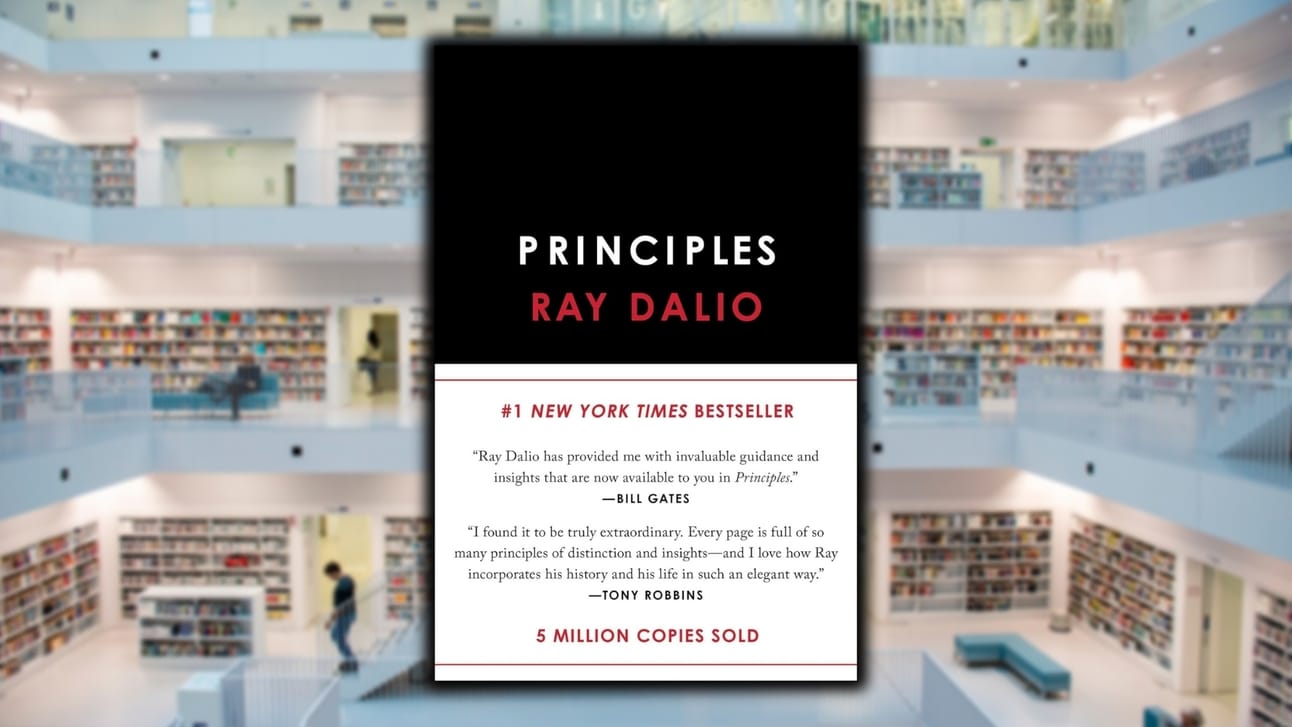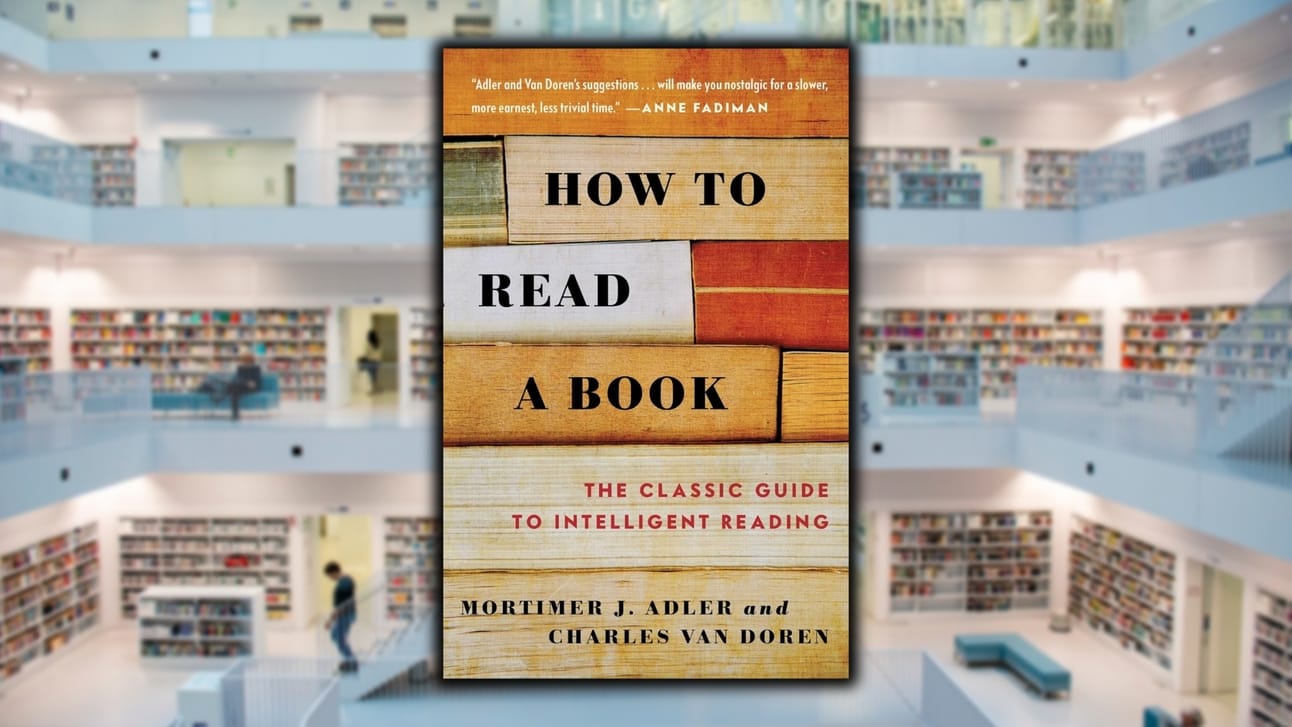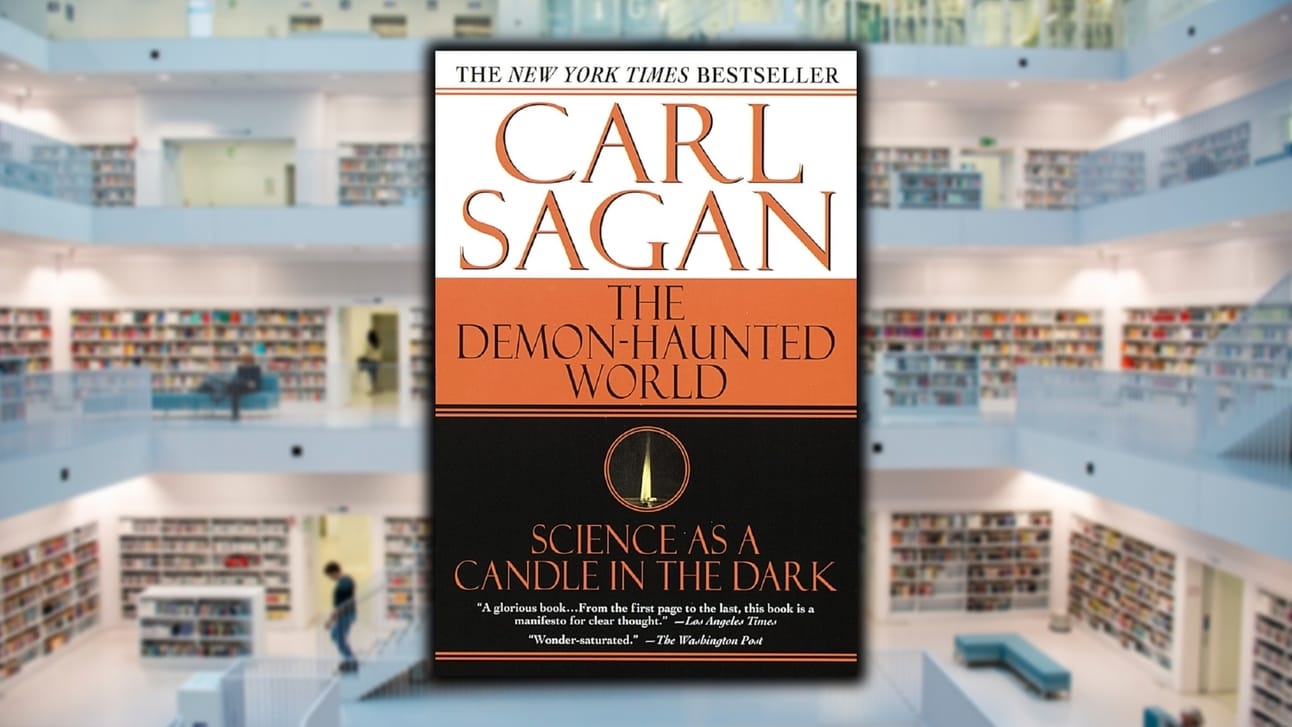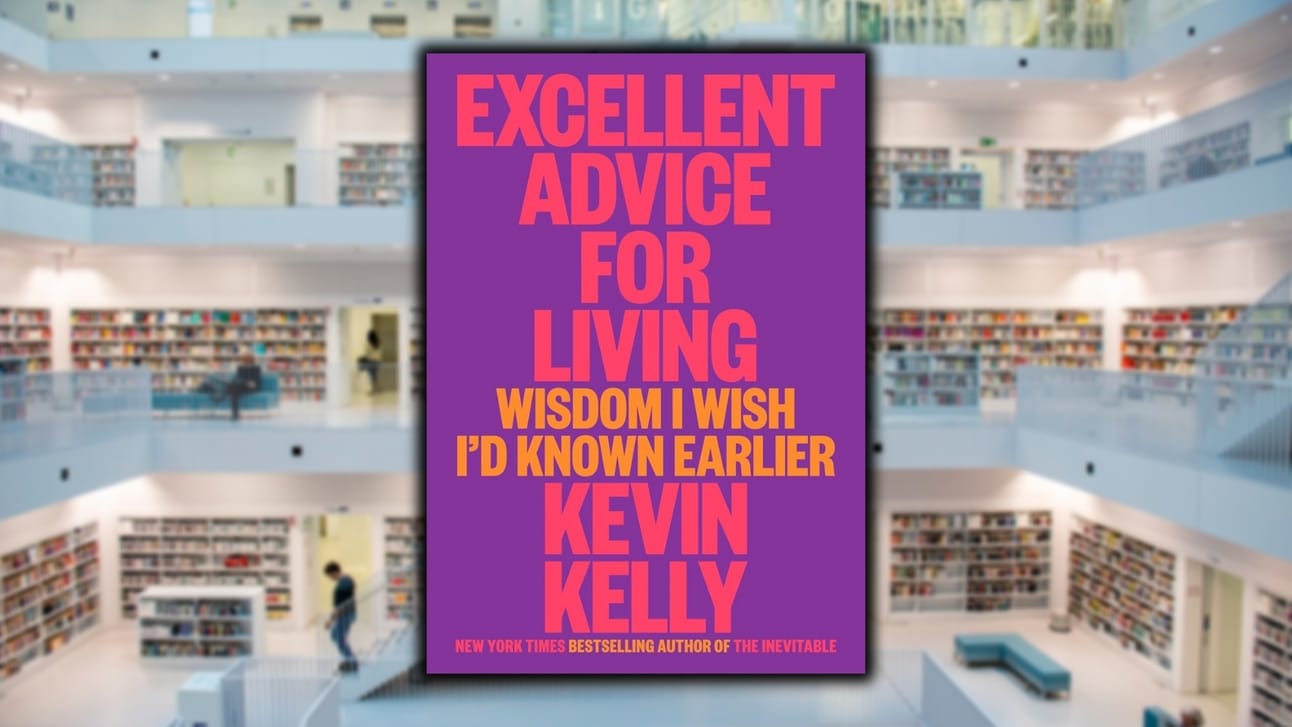When I finished reading my 100th book, I thought I was pretty smart.
But by the time I finished reading my 1,000th book, I realized just how little about this strange universe I truly understood.
Basically, the more books I read, the “stupider” I got! Funny how that works!
Regardless of whether or not “stupider” is actually a word, it’s true that the more you read and the more you learn, the more you realize there is to learn.
Learning is one of the wildest rides there is (all without getting up from your chair!), but the fact is that the world can be an extremely confusing place if you’re not equipped with the mental models and thinking processes outlined in the following books.
It’s never been more important to learn how to think critically, come to your own conclusions, be able to verify what you’re being told, and spot nonsense when it’s presented to you as truth.
These 10 books will increase your intelligence (YouTube), but the 10 books here in this newsletter with help you think critically.
The world is a confusing and constantly-changing place, but we don’t have to be helpless victims of circumstance. With the help of these books, we can fight back against propaganda, uncertainty, and ignorance.
Now, before our coffees get cold…let’s read!
Tonight, Inside The Reading Life, We’ve Got:
We’ve got lots to learn today, so let’s hit the books!
“Is it your reputation that is bothering you? But look at how soon we're all forgotten. The abyss of endless time that swallows all. The emptiness of all those applauding hands.”
“After all, when two people reach opposite conclusions, then odds are, someone must be wrong. Shouldn't you want to make sure that someone isn't you?”
The quality of Ray Dalio’s decision-making led to him growing his hedge fund, Bridgewater Associates, to more than $124,000,000,000 in Assets Under Management (AUM), becoming a very wealthy man himself in the process. But that’s one of the least interesting things about him. How his mind works is incredible. And incredibly rare.
What I appreciate the most about Ray’s thought processes is that he just wants to be right - he doesn’t necessarily care if the right answer comes from him.
To that end, he seeks out the most believable people in particular subject areas, attempts to understand their viewpoint - and most importantly, what led them to their viewpoint - before engaging in what he calls productive disagreement with the people whose opinion he rejects, or at least doesn’t fully understand.
Principles is the first book in a series of incredibly in-depth, well-researched, and thoughtful books exploring global macroeconomic trends, historical cycles, and market volatility. He’s not right about everything, and he’s certainly not perfect, but if you want to become a more critical thinker, that’s kind of the whole point.
“Wind extinguishes a candle and energizes fire. Likewise with randomness, uncertainty, chaos: you want to use them, not hide from them. You want to be the fire and wish for the wind.”
Antifragile is a masterwork, and if you don’t believe me, just ask the author, because that’s what he’ll tell you, too! I’m half-kidding, but not really.
Nassim Taleb is one of those brilliant thinkers who’s aware of the fact that he’s a brilliant thinker, and a legitimate criticism that’s been leveled against this book is that that attitude is kind of tough to take for 500 pages. But I thought the book was fantastic! It certainly changed and improved the way I think.
The term antifragile is meant to refer to something that “gains from disorder,” or shocks, adverse events, etc. Along a spectrum, you’ve got fragile, robust, and antifragile.
For example, a politician would be “fragile” in the event of a massive scandal, and it could very well mean the end of his or her political career.
Not true for someone like a construction worker or a security guard, who, even if they do find themselves in the middle of some massive, negative publicity event, they can fairly easily find another job, even if they have to move three towns over. They are robust.
The term antifragile could apply to someone like, say, an author or artist, who, even in the middle of a public-relations shitstorm, would likely find themselves exposed to a massive new audience of people who will end up buying their books, sharing their art, talking about them, and making them even more famous.
The author or the artist would be antifragile because they would profit from negative events like this, and Taleb is saying that there are entire categories of human existence where this same principle operates - and where we can tap into it to get everything we ever wanted.
“True freedom is impossible without a mind made free by discipline.”
This is a classic reading guide, originally published in the 1940s that is one of the better books out there about how to get the most out of your reading.
It’s fairly dry and academic in places - and again, a certain air of elitism can be detected in certain places - but I thought it was wonderful, and it helped me out tremendously.
In the book, Adler covers the four different types of reading and when each is appropriate, how to select your own reading list based on what you’re interested in and what’s most useful to know, how to ask great questions while you’re reading the book, and a lot more that will really take your reading to the next level.
"I'm a very serious 'possibilist'. That's something I made up. It means someone who neither hopes without reason, nor fears without reason, someone who constantly resists the overdramatic worldview.
As a possibilist, I see all this progress, and it fills me with conviction and hope that further progress is possible. This is not optimistic. It is having a clear and reasonable idea about how things are. It is having a worldview that is constructive and useful."
This is one of the most hopeful, positive, optimistic - and yet realistic - books that I’ve ever read, and its whole purpose is to convince you (with incontrovertible facts, numbers, and data) that the world is not only getting better and better all the time, but that life on earth is the best it’s ever been.
That may not seem like it’s true if you watch the news (which I try not to), but you have to remember that the news media is in the business of monetizing attention, and nothing captures attention like a blazing train wreck.
News stations could fill their entire broadcast with all the spectacular advances and amazing progress being made every single day, all over the world, but they never will, because then people wouldn’t watch. And if people didn’t watch, their advertisers would reduce their budgets, and they wouldn’t make as much money.
You can probably tell that I do NOT have a very high opinion of (most) journalists.
Even when they’re not blatantly lying to you, they’re lying by omission, because the planet isn’t doing nearly as bad as they make it seem.
Again, it’s just incentives, but this book comes armed with charts and graphs (and more) that will show you - beyond a doubt - that humanity is on an upward trajectory, and if we can survive this (admittedly) precarious moment in history, the stars aren’t even the limit.
“Our comforting conviction that the world makes sense rests on a secure foundation: our almost unlimited ability to ignore our ignorance.”
Daniel Kahneman was a Nobel Prize winner in Economics, and Thinking, Fast and Slow is easily his most influential book. Many of the concepts he first introduced here have made their way into popular usage, including the division of the human mind into two separate systems that he called System 1 and System 2.
System 1 is fast, intuitive, and emotional, whereas System 2 is slower, more deliberative, and more logical. These aren’t discrete systems within the brain, however, but rather a helpful way of thinking about what’s going on up there!
When you have to make snap judgements or fast decisions, you’re engaging System 1, and when you’re engaged in slow deliberation or prolonged, conscious thought, you’re using System 2.
Another distinction he makes is between the “experiencing” self and the “remembering” self, drawing the conclusion that they’re almost like two different people! There’s what you’re experiencing now, reading these words, wherever you are, and what you’ll remember about this experience later.
And spoiler alert: people are way too trusting of the productions of their own minds!
“Loss aversion” is something you’ll hear lots of psychologists and researchers talk about, and that’s something Kahneman discusses quite thoroughly too. Basically, we feel that losses hurt more than winning feels good.
Losing $100 will be more psychologically painful than winning $100 would be psychologically pleasurable, and those are just a few of the hidden secrets and surprises he unearths throughout the book.
It’s a fascinating book, and very well worth reading, especially if you’re in business or want to protect yourself against some of the cognitive biases that lead us to make our most disastrous mistakes, but Kahneman himself would caution that just knowing about these cognitive biases doesn’t necessarily mean you’ll always escape them.
He literally wrote the book on this stuff, and he’s said in interviews that he still falls for some of these cognitive biases and traps of thinking. And again, he’s a Nobel Prize winner!
“Science is an attempt, largely successful, to understand the world, to get a grip on things, to get hold of ourselves, to steer a safe course. Microbiology and meteorology now explain what only a few centuries ago was considered sufficient cause to burn women to death.”
The astrophysicist Carl Sagan was one of my favorite people ever, and I owe a lot of my gratitude for being alive directly to him and his books. Cosmos, Pale Blue Dot, Billions and Billions - all those books and more have been massively influential when it comes to shifting my worldview (my galaxy-view haha), and Sagan was one man who knew how to think critically.
This book, The Demon-Haunted World, is about pseudoscience, forgeries, hoaxes, and more, and about how we can identify them, protecting ourselves against their intellectual influence.
It’s tightly argued and wise, and Sagan’s generous view of humanity and its potential survives to the very last page, even after describing, in great detail, all the various ways we’ve been deceived over the millennia, by ourselves and by others.
“I think that in modern America, we have far too many options for breakfast cereal and not enough options for president.”
The Paradox of Choice is a book that attempts to explain why, in a society where we’ve never had more freedom, opportunities, and choices, we’ve never been more dissatisfied with our lives. Or, at least, we’re nowhere near as satisfied with our lives as we perhaps “should be,” given the relative abundance we’re collectively experiencing now.
The author, Barry Schwartz, presents some counterintuitive ideas that explain why we have such a hard time predicting what will make us happy, what will likely lead to regret, and how we make decisions (or don’t) under various psychological conditions.
I’m not sure how many copies the book has sold, but I see this book referenced all the time in my other reading, and it’s shaped the discourse around decision-making, freedom, lifestyle design, choice architecture, and more. Reading it will help you make better, more fulfilling choices, but it will also explain why other people make such stupid ones.
“Don’t be afraid to ask a question that may sound stupid, because 99% of the time everyone is thinking of the same question and is too embarrassed to ask it."
Kevin Kelly is the co-founder of Wired magazine and a highly-praised futurist and author whose optimistic outlook on the next chapter of human history has inspired a generation to think bigger and to advance confidently into the next stage of human evolution.
The life advice presented in this book was originally intended for his young adult children to help them navigate the hazardous future we all find ourselves hurtling towards. But the very act of writing them down caused him to realize that he had much more to offer than he thought he did when he began, which resulted in him eventually compiling this wonderful collection of 450 wise, practical, and incredibly valuable aphorisms.
The range of subjects they cover is as wide and deep as life itself, and so you'll find here advice about setting ambitious goals, cultivating peace of mind and equanimity, dealing with loss, organizing your life around adventure and spontaneity, dispelling anger and sadness, minimizing regret, and so much more.
As you read the book and filter this life advice through your particular worldview, situation, and understanding, you're probably going to disagree with at least a few of them, or find them irrelevant or silly, etc. But which ones those are will change depending on who you are. That's part of what makes books so magical!
That being said, if it's true that your quality of life is roughly equal to the quality of the 20-30 people who give you the best advice, then you'd be wise to include Kevin Kelly in that group.
“I believe it is time for us to reclaim our right to a full night of sleep, without embarrassment or the damaging stigma of laziness. In doing so, we can be reunited with that most powerful elixir of wellness and vitality, dispensed through every conceivable biological pathway. Then we may remember what it feels like to be truly awake during the day, infused with the very deepest plenitude of being."
This is the book that “scared me straight” when it came to my sleep, and I’d say it’s been one of the most practically useful books I’ve ever read. Ever. And I mean that.
One key aspect of learning is behavior change: if you haven’t changed your behavior in light of new information, you likely haven’t learned anything. Well, after learning about the deleterious (and deadly) effects of sleep deprivation, and all the critical bodily functions that are directly impacted by sleep (or the lack thereof), I made immediate changes to my routine, my sleep environment, my schedule - everything.
And I’ve never looked back. It’s been nothing short of life-changing, and it’s probably added at least several years to my life too! I’d say I probably lose about 50 IQ points on days when I haven’t gotten enough sleep the night before, and if you want to improve your critical thinking skills, start with your very own pillow!
“Read books are far less valuable than unread ones. The library should contain as much of what you don’t know as your financial means, mortgage rates and the currently tight real-estate market allows you to put there.
You will accumulate more knowledge and more books as you grow older, and the growing number of unread books on the shelves will look at you menacingly.
Indeed, the more you know, the larger the rows of unread books. Let us call this collection of unread books an anti-library.”
A “Black Swan” refers to a highly unlikely or improbable event, one that carries with it a massive impact but which, after the fact, we come up with a whole bunch of explanations to convince ourselves that it was more predictable than it actually was.
Essentially, we’re focused so much on what we “know for sure,” and don’t spend nearly enough time thinking about what we don’t know and have never even considered. Stock market crashes, wars, pandemics - all these and more are Black Swans, and when they inevitably (yet unpredictably) arrive, most people are left scrambling.
The Black Swan both diagnoses and describes, but also prescribes ways of dealing with and preparing for Black Swan events that could save you a ton of time, energy, money, stress, and heartache. It’s also just a fascinating book that will help you think more critically, and humbly, when faced with what to do in a world none of us fully understands.
Forward this to a friend you think would love this book!
If you were sent this newsletter, click here to subscribe.
To read past editions of The Reading Life, click here.
Click here to recommend The Reading Life on Twitter (X).
OK, that’s it for now…
I’ve got plenty more excellent book recommendations coming your way soon though!
There’s also my YouTube channel, where I publish book reviews, reading updates, and more each week.
And if you want to learn how I’ve built an audience of 160,000+ followers across social media, became a full-time creator, and how I’m rapidly growing my audience and my profits in 2025, join us inside Creator Launch Academy and that’s exactly what I’ll teach you — we’d love to have you in the community!
With that said, I hope you enjoyed this edition of The Reading Life, and enjoy the rest of your day!
Until next time…happy reading!
All the best,
Matt Karamazov
P.S. Whenever you're ready, here are two more ways I can help you:
Creators: Book a 1:1 call and I’ll help you hit $5K/month with a plan tailored to your business.
Join Creator Launch Academy, my mastermind for content creators building real revenue and real freedom.




























